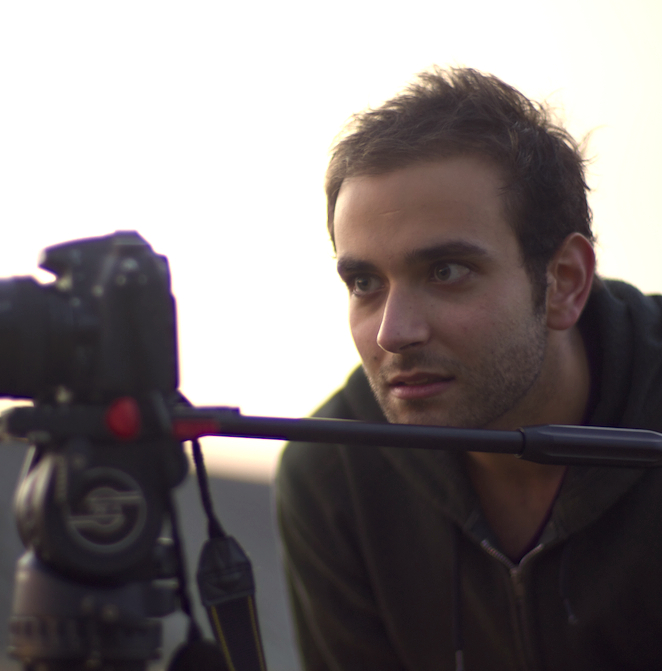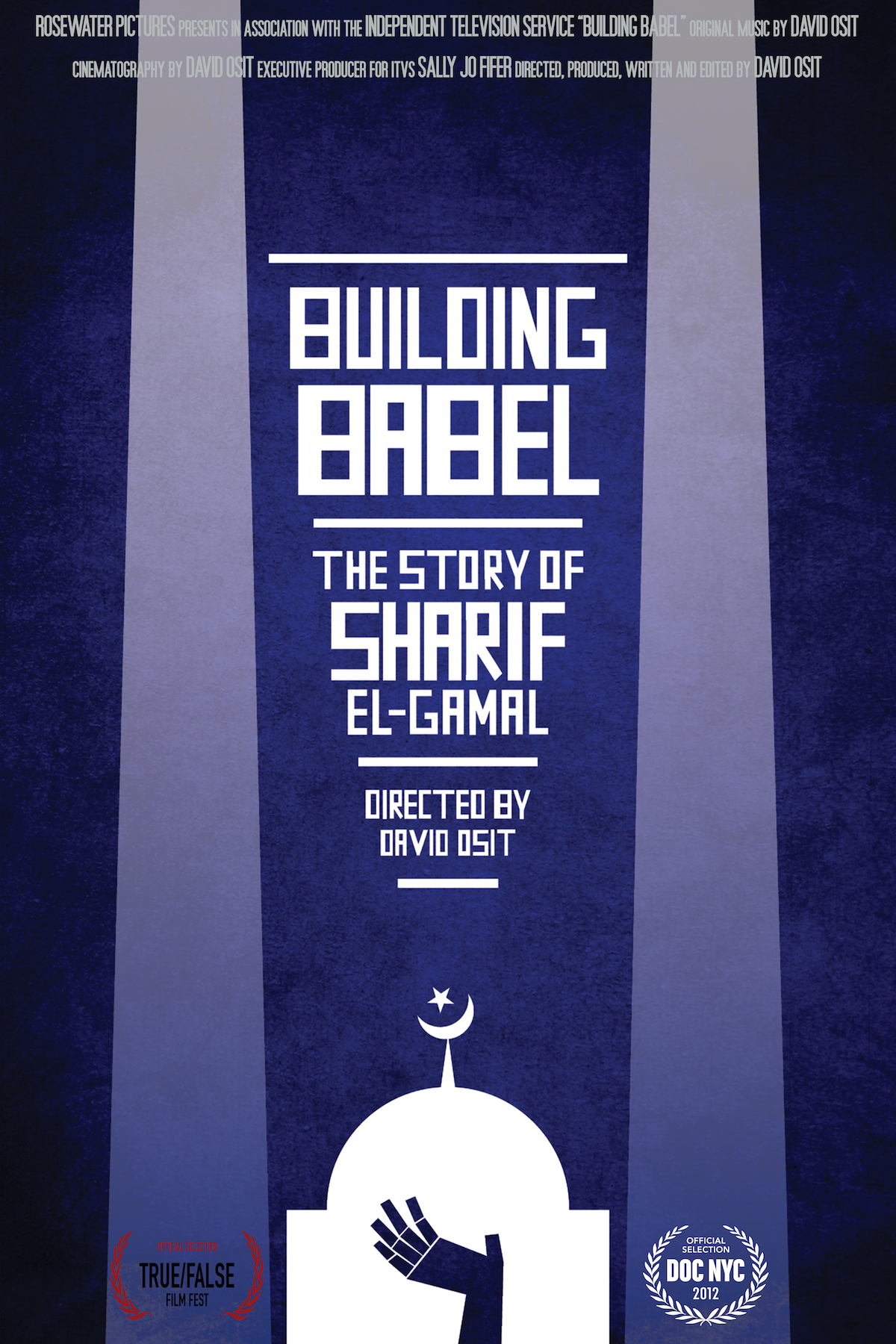
As the first of its 2013 Winter Documentary Film series, interfaith spiritual community Sanctuary NYC will screen Building Babel this Sunday, January 27th at 4:30 p.m. The movie follows a year in the life of Sharif El-Gamal, the developer behind New York's Park51 -- sometimes referred to by opponents as the "Ground Zero Mosque" -- a Muslim community center planned two blocks from the World Trade Center site. The film covers El-Gamal's struggle to build the embattled center against seemingly endless opposition, all while struggling with his own religion and identity amid intense scrutiny.
Recently I sat down with David Osit, the 25-year-old cameraman, director, editor and producer behind the film. Osit created Building Babel as his MFA thesis in social documentary filmmaking for New York's School of Visual Arts (SVA).
Stroud: What interests you about the subject matter of Building Babel?
Osit:At 16, I took a trip to Turkey as part of a high school scholarship program. I was exposed to a world that I had never really thought about or seen before. From that point on, I really wanted to study the situation in that part of the world.
Stroud: How did you get involved with this project and, in particular, with Sharif El-Gamal?
Osit:After my first year of graduate school, I heard about this project in the Downtown Express, before anyone really cared at all. I thought it sounded interesting. The Cordoba Initiative was one of the entities involved in building the center. I interned with them as an HTML web guy. I went in on May 7th and started interviewing them and filming in the office. Within two, three weeks there were throngs of angry people screaming about "the mosque" and the news outlets showed up. I met Sharif when Scott Stringer, the Manhattan Borough President, spoke in favor of Park51. I had the access to people involved with Park51, but right away I knew that Sharif had to be the focus of the film. This is a rare chance to see a Muslim-American family that was not involved in anything suspicious -- they were just a good family. There are too many instances when Islam is mentioned that it's in the context of extremism or terrorism. There is no mention of "moderate Islam." I don't like that phrase "moderate Islam."
Stroud: Why don't you like the phrase "moderate Islam"?
Osit:People don't say "moderate Jews" or "moderate Christians." It's a loaded phrase. People always complain, "Where are the moderate Muslims? Where's their voice?" Their voice isn't amplified. No one wants to amplify the voice of moderate Muslims because it's not as interesting as what the radicalized Muslims are doing. This was 10 years after 9/11. What do Muslim-Americans look like at this point? What are they experiencing in this country? How long until they're considered American?
Stroud: How did Sharif take being approached about being the subject of a documentary?
Osit:When he saw the fact that I was interested in telling his story from behind the scenes, it was very exciting to him. He was doing something good for the community and couldn't understand why people didn't get that.
Stroud: Did he agree to be in the documentary before or after the controversy started about the project?
Osit:He agreed to be filmed as it was really heating up. He said, 'Come by any time; my door is always open.' It took a lot more time for him to be able to confide in me. I didn't ask him to go film with his family until about eight months into filming, because I wanted him to understand what my perspective was and how I felt.
Stroud: I understand your film will appear on TV in 2013.
Osit:I'll be on PBS. I submitted the film when it was in a rough cut stage -- and while I was still in graduate school -- to ITVS [The Independent Television Service, which funds, presents and promotes award-winning documentaries on public TV]. They're based in San Francisco and they have a very, very competitive open call. I was one of 11 filmmakers chosen out of, I think, 2000.
Stroud: 11 out of 2000 students or professionals?
Osit:Students are discouraged from applying.
Stroud: So why did you decide to continue to pursue the grant?
Osit:Because I was not discouraged. I wanted to finish my film and thought that it would be a good fit for them.
Stroud: Did you need the funds to be able to finish Building Babel?
Osit:What I did need from them was the ability to have this film really made well, which is what that money gave me the opportunity to do. And, to get the film on PBS will be a wonderful thing; to have a broader audience see it. I'm so incredibly thankful to them. The film opens up a really interesting and very rarely seen conversation into what is going on with the Muslim community in this country; how it's become vilified and falsely misrepresented. It's a big problem. I'm invested in impacting someone's circle of knowledge, in injecting energy into the ideas about Muslim-Americans.
Stroud: Why do you think that there was such an outcry about building a Muslim cultural center project near the World Trade Center site?
Osit:It was an election year and people wanted something to get riled up about -- and because it's very easy to have a knee-jerk reaction to something if you don't understand the thought process behind it.
Stroud: One of the accusations hurled by those against Park51 was that Muslims want to build a mosque on sites where they claim victory. What's your take?
Osit:I remember people bringing up the reference to Cordoba. Sharif just wanted to build a community center in lower Manhattan like the JCC [Jewish Community Center] or the YMCA [Young Men's Christian Association]. And, he is a businessman -- and it was a good business project. He had a piece of property he wanted to develop. He wanted to do something good for the community. I don't see anything more American than choosing a project that does good and also makes a little bit of money.
Stroud: What ultimately do you think will happen with the project?
Osit:I don't know. I'm not privy to the financial figures and so forth, but I do think there is a lot to toxicity around it. It requires a lot of money to create a large edifice in Lower Manhattan and it's difficult to raise money, especially if you're dealing with a project that has so much baggage attached to it, even if it is unfair baggage.

Sanctuary NYC Presents
In cooperation with One Spirit Learning Alliance and The Center at West Park
Winter Documentary Film Series 2013
Building Babel, A Film by David Osit
Location: West Park Presbyterian Church, 165 West 86th Street (at Amsterdam), New York City
Date/Time: Sunday, January 27, 2013 at 4:30 pm after the Sanctuary NYC service
After the screening, Sanctuary NYC will host a discussion with both filmmaker David Osit and Building Babel subject Sharif El-Gamal.